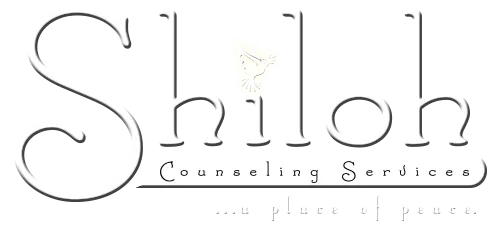
As
a parent, you spend each day preparing your child for the rest of
their lives. Despite your best efforts, some situations are beyond
your control and experience, and you are unsure where to turn. Some
of the most common areas of life that parents consider their child or
teenager for therapy include:
- Poor academic performance
- Traumatic events
- Divorce or blended families
- Difficulty making or keeping friends
- Defiance or acting out
In addition to these circumstances, there is seldom a reason too big or too small for your child or teen to seek therapy. At Shiloh, your child or teen’s therapist will work to develop the most appropriate plan of action to support you and your child in achieving the goals you all have in mind.
How Young Is Too Young for Child Therapy?
This is a fantastic question. Some research and therapy modalities have been proven effective in children as young as 3 years old. However, therapy with such a young child will have parental involvement in each session and will likely focus on helping parents navigate the challenges and difficulties they are experiencing with their child. While different therapists and therapy techniques will have different age ranges, for kids between 3 and 10, parent involvement will likely be a key component of any child therapy.
Children's desire for independence grows as they enter pre- and teenage years, and more child and teen-specific goals can be created. Once your therapist believes individual time is warranted and beneficial, sessions often look like children or teens spending most of the time one-on-one. At the end of the session, parents will likely be invited in to cover any necessary information to focus on until the next session. No matter the situation you and your child or teen are experiencing, communication and collaboration to achieve the goals you have for your child and the goals that your teen creates will be at the forefront of therapy.
How Involved Am I as a Parent?
The answer to this question largely depends on several factors. First, therapists often have their own expectations for parent involvement when seeing a child or teen. This is often the case since you, as a parent, are around your child much more than a therapist. Since typical therapy is only once a week, the skills, techniques, and strategies learned in therapy are reinforced by family support. Family support can be specific skills that parents are taught by your child’s therapist or by collaboration between you and your teen to develop healthy and effective methods to increase your relationship satisfaction.
As a parent, it is also important to know that each child, teen, and family is different, so therapy will look different for everyone. No matter the situation with your child or teen, if you have a thought, concern, or question about their therapy, always communicate with the therapist. There are boundaries that your child’s therapist will set at the onset of therapy, but communicating with the therapist is in your and your child’s best interest.
Why Would My Child or Teenager Need Therapy?
The short answer to this question is that there is no singular answer. Between the ages of 5 and 17, all sorts of changes, challenges, difficulties, and experiences that influence a child and teen’s life will take place. Additionally, children and teens all develop differently, and therapy can often help a family understand any potential areas in which development may be a reason for specific challenges. While difficulties are not necessarily a reason to always seek therapy, sometimes additional problems arise. In situations where problems persist, or behavior is quite different from their ‘normal’ self, therapy may be beneficial.
In children, behavior outbursts can occur for numerous reasons, with some of the most common reasons being the following:
- Trouble learning in school.
- Parental stress, arguments, and conflict.
- Introduction of a new sibling into the home.
- Changing schools or grades.
- Friends moving away.
- Developmental changes.
These and many other reasons could indicate that your child or teen could benefit from therapy. If you are wondering whether your child or teen is appropriate for therapy, our therapists at Shiloh are here to provide you with the support and guidance you seek.
